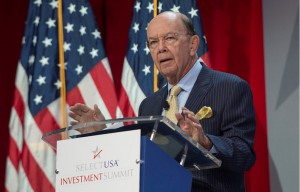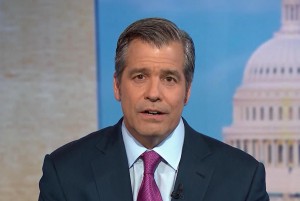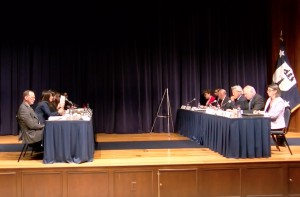
Commerce Secretary Wilbur Ross is leading the Section 232 investigation into whether or not imported automobiles and parts represent a threat to the U.S.
During the U.S. Department of Commerce’s public comment hearing today, the Trump administration was warned the steep tariffs it has under consideration could add a total of $83 billion to the cost of new vehicles sold to American consumers.
“Higher auto tariffs will harm American families and workers, along with the economy” and “would raise the price of an imported car nearly $6,000 and the price of a U.S.-built car $2,000,” the Auto Alliance said in a statement prepared for the hearing.
Meanwhile, dozens of employees from Toyota’s 10 U.S. assembly plants descended on Washington D.C., to oppose the government’s threat to impose a 25% tariff on imported vehicles and parts. They were joined by U.S. production workers from other international automakers across the country.
To draw attention to the automakers’ U.S.-built vehicles, a caravan of cars and trucks circled the Capitol during a Commerce Department hearing examining whether auto imports are a “threat to national security.”
Toyota exports eight of its U.S. models to 31 countries. If tariffs are imposed, Toyota estimates the cost of the Kentucky-built Toyota Camry will increase by $1,800, the Texas-built Tundra truck by $2,800 and the Indiana-built Sienna minivan by $3,000, Toyota said.

John Bozella, president and CEO of the Association of Global Automakers, testified before the Commerce Department today about the harm tariffs could cause.
(Auto industry unites to challenge Trump tariffs. Click Here for the story.)
In May, the Trump administration launched an investigation into whether imported vehicles and parts pose a threat to U.S. national security. President Donald Trump said he would quickly impose tariffs of 20 or 25%. The Commerce Department said this week it had made no decisions and aims to complete the investigation “within a couple months.”
The proposal has drawn opposition from several quarters.
“At Ford, I learned about the responsibility that we share about the deep and longstanding ties that bind the automobile industry on both sides of the Atlantic. Instead of harming the United States’ national security, the German automotive industry has proven to be an integral and vital part of the US economy,” said Bernard Mattes, president of the German Association of the Automotive Industry, who flew in from Berlin for the hearing.
“Since the last recession, the U.S. industry has experienced almost a decade of sales growth and growing employment in formerly deprived regions and this is not least because of German automobile manufacturers’ investments in the United States.
“Today, our members – manufacturers as well as suppliers – operate more than 300 plants in the U.S. We produce more than 800,000 cars ‘Made in the USA.’ We create over 100,000 high quality jobs — and this is in production only, with many more in supply services. In total, German companies are the fourth-largest foreign employer in the U.S. and account for almost 10% of the total 6.8 million jobs created by foreign companies, with almost one out of every five German-created jobs being in the automotive sector.

Auto industry representatives testified before a U.S. Department of Commerce public hearing against new tariffs proposed by President Donald Trump.
(Click Here to see why NAFTA talks are halted — for now.)
“Up to now we have invested more than $30 billion and additional investments of $5 billion just in the next four years have already been announced. For the German auto industry the U.S. is not only a significant production location but an important strategic market and an export hub with more than 60 percent of our production being exported,” he added.
All this contributes to American wealth, prosperity and jobs, allowing this fantastic country’s economy to grow.
“Let me be very clear: Companies in our industry are so deeply intertwined that our fate is a common fate. Manufacturers heavily rely on open markets, due to our integrated and interdependent supply chains. We can either grow together — or fall together,” Mattes said.
Mattes said additional tariffs will cut deeply into the tightly knit net between our companies. They would threaten our ability to export successfully out of the US and call future investment into question. Tariffs on US products will not only harm exports, but undermine competitiveness and strengthen other production locations with severe negative effects on investment and employment in the US.
“This scenario terrifies me – and things can be made worse by countermeasures which other countries could take. Such a scenario, rather than free trade between partners, is a risk to national security. U.S. national security relies on its economic performance, Mattes said.
(Mexico targeting end of November for NAFTA deal. Click Here for the story.)
The global auto industry is not a threat to U.S., said Ann Wilson, MEMA senior vice president of government affairs. “The importation of motor vehicle parts is not a risk to our national security,” said Wilson. “However, the imposition of tariffs is a risk to our economic security, jeopardizing supplier jobs and investments in the United States.”
